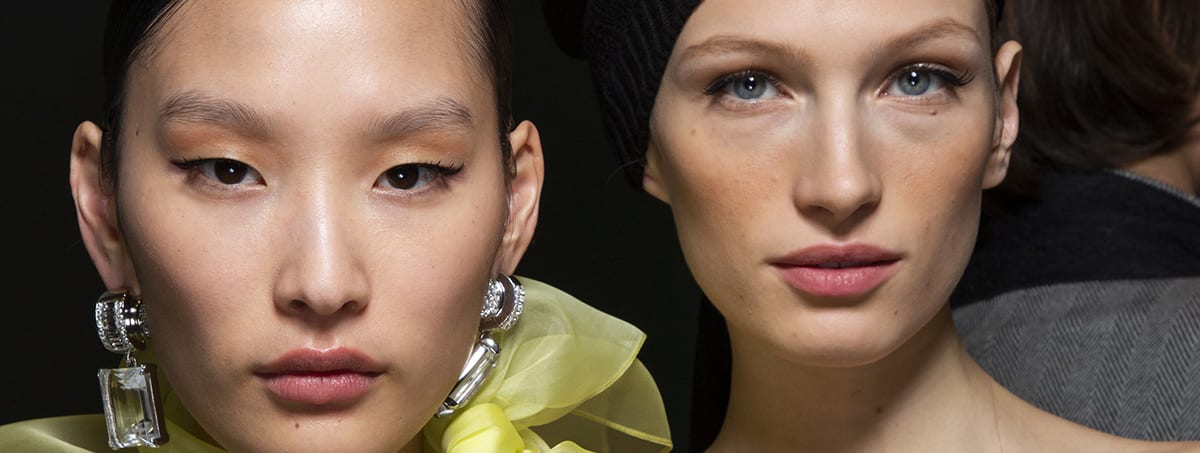From Artificial Intelligence to DNA and microbiome profiling, future skincare solutions promise to address your skin’s unique needs. We find out what the future holds for bespoke beauty.
If you’re tired of feeling like your favourite skincare brand takes a one-size-fits-all approach to your skin, you’re probably not alone. All too often are products marketed to suit a certain age group or demographic. But things could be set to change as beauty insiders believe the growing demand for personalised products will dramatically shape our beauty cabinet of the future.
“We are immersed in a world of ‘personalisation’ from having our name on a Coca-Cola bottle, our initials on just about everything and our own personally designed fragrance,” says Emma Hobson, Dermalogica’s education director for Australia and New Zealand. “It’s also a key element that customers also demand from their skin treatments and home care products.”
With many of us looking for ways to simplify our beauty routines, a personalised approach could be the solution, believes skin expert Tracy May-Harriott: “People get confused with too much information.” Instead of excessive 15-step routines, she believes concise, clinically proven formulations hold the answer to our time-poor lifestyles. “We all want efficacy and we want it to fit in with a fast-paced lifestyle. We want clever products that adapt to our daily variables of life, and that can be personalised to daily needs.”
Katy Bacon, Murad’s director of education for Australasia Pacific, says we can expect more innovation in 2020 and beyond. “Personalisation of skincare and colour cosmetics continues to rise in popularity as consumers seek products targeted to their specific needs.” As the science and beauty worlds overlap more than ever, we’ll see more skincare emerge that takes our DNA into account. “Just as skin analysis is standard practice, skin profiling for DNA and microbiome will soon become standard practise also,” says Hobson. “As a person’s skin type is mainly dependent on their epigenetic and microflora status, which is changed in response to different environmental stimuli, it opens up great opportunities to profile a person’s skin, determining a personalised selection of skincare products optimally suited for them.”
Hobson says the potential for creating the ideal routine through skin microbiome profiling is impressive. “Skin microbiome profiling could be as accurate as 85 per cent in predicting the clinical status of the skin, allowing skincare experts the ability for incredible personalisation for bespoke skin treatments and products.”
There’s a gadget for that
Bacon says that clever gadgetry will redefine our beauty routines. “In beauty devices, personalisation can come via specific smartphone apps. These apps empower consumers with self-diagnosis, procedure timing and step-by-step directions.” Last year, L’Oréal unveiled My Skin Track pH by La Roche-Posay – the first wearable sensor and companion app to easily measure personal skin pH levels and create customised product regimens. “Foreo’s LUNA fofo cleansing tool has in-built artificial intelligence (AI) to monitor skin hydration levels to customise users’ cleansing routines,” says Bacon.
In 2019, Shiseido revealed Optune. The system offers 80,000 skincare patterns matched with the user’s skin conditions and living environment. Via an app users can track their skin conditions, sleep patterns, hormone levels and environmental factors. The system’s dispenser includes five serum cartridges dispensed according to the data gathered from the app.
More recently, L’Oréal unveiled Perso – a system that utilises artificial intelligence to create personalised skincare formulations in four steps. Firstly, the Perso app takes a photo of the user’s skin and analyses its condition using AI. Geolocation data is then analysed to take into account environmental conditions such as weather, temperature, UV and humidity that can all influence skin health. Next, the user can enter their personal skin concerns into the app and finally the data is used to create a personalised blend of skincare that is dispensed via the at-home system. Perso will reportedly be rolled out into the market in 2021 alongside one of L’Oréal Group’s leading skincare brands.




